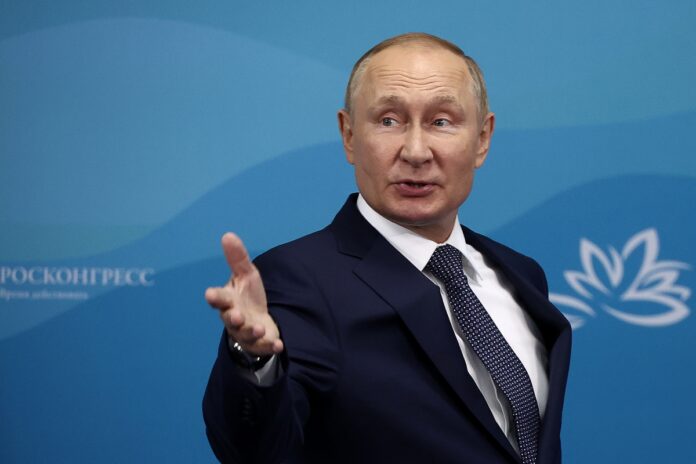Russia’s foreign ministry has condemned the death of a Russian journalist in Ukraine describing it as a ‘heinous, premeditated crime,’ which they attributed to Western powers and Kyiv. They asserted their determination to retaliate against those found culpable.
Following a Ukrainian strike in the southern Zaporizhzhia region on Saturday, the Russian military announced the death of Rostislav Zhuravlev, a war correspondent employed by the state RIA Novosti news agency.
Additionally, the agency covered the journalist’s passing, noting that he was killed in the vicinity of the frontline village of Pytikhatki.
‘As a result of a strike by the Ukrainian army using cluster munitions, four journalists were wounded in various levels of severity,’ the Russian army said in a statement.
‘During an evacuation, the RIA Novosti journalist Rostislav Zhuravlev died from his wounds that resulted from the cluster munitions exploding.’
‘Everything indicates that the attack on the group of journalists was not carried out by chance,’ the Russian foreign ministry said.
Read also: Putin: Retribution Awaits Wagner Boss – CIA Chief
‘The competent international organisations prefer, as before in such cases, to turn a blind eye to this heinous crime,’ it added.
The ministry said, ‘the journalists were gathering material for a report on the bombing by the Kyiv regime militants of settlements in the Zaporizhzhia region using cluster munitions banned in many countries around the world’.
The authorities confirmed that three other journalists wounded in the attack were in a stable state and were currently hospitalized for treatment.
The Russian government pointed fingers at the United States, alleging that they were the ones who delivered the weapons to the Ukrainian army.
As part of Kyiv’s grinding counteroffensive, the White House confirmed that Ukrainian forces have been employing cluster munitions sourced from the United States on the battlefield.
Many countries have banned these weapons because of the long-term dangers they present to civilians, as they scatter numerous small explosive charges that can remain unexploded in the ground.
